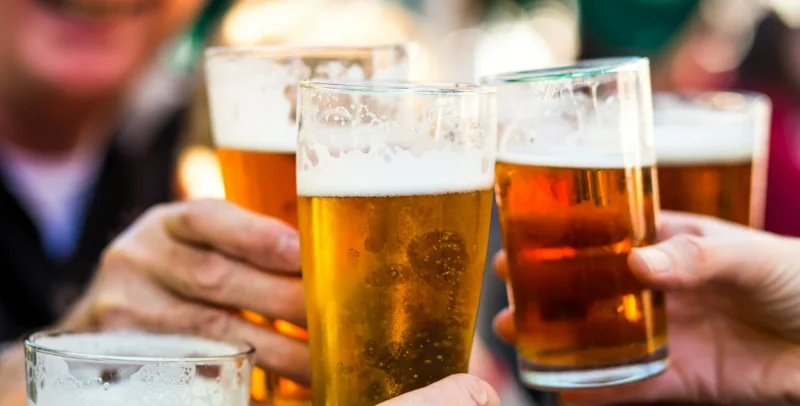More than 20 organizations, including the Czech Medical Chamber (ČLK) and the Czech office of the World Health Organization (WHO), are urging Czech politicians to limit the availability of alcohol in the country.
The groups are advocating for stricter regulations on alcohol advertising, as well as the times and locations where alcohol can be sold. They also propose that excise taxes be adjusted based on the alcohol content of beverages.
During a press conference, representatives emphasized that the Czech Republic is one of the worst countries in the world for alcohol consumption, with up to 7,000 alcohol-related deaths each year. “This results in tens of thousands of hospitalizations, and the damage also affects our economy. The costs associated with alcohol consumption amount to around 40-50 billion annually,” said Tomáš Šebek, a doctor and founder of the “Minister of Health” analytical center. Petr Pleva, a board member of the Rational Addiction Policy center, added that most cases of domestic violence are linked to alcohol consumption.
“Despite the fact that alcohol is essentially a heavy drug due to its safety profile, it is widespread in Czech society, even being consumed by children,” said Pleva, noting that up to 90% of children first try alcohol through their parents, often before the age of 15. Data also shows that nearly half of high school students report excessive alcohol consumption.
“Alcohol is cheap, widely available, and heavily advertised,” said Zsófia Pustaiová, head of the WHO office in the Czech Republic. She pointed out that Czechs consume nearly 14.5 liters of pure alcohol per person per year, almost five liters more than the European average of 9.5 liters. Pustaiová also highlighted concerns about alcohol consumption during pregnancy among Czech women.
The organizations have proposed five key recommendations to address the situation, including banning alcohol advertising on the internet and at sports events, restricting alcohol sales near schools and government buildings, and limiting sales late in the evening. They also suggest that excise taxes be tied to the alcohol content of drinks and that existing measures, such as the ban on alcohol sales to minors, be better enforced. Educational campaigns are also seen as crucial to addressing the issue.




